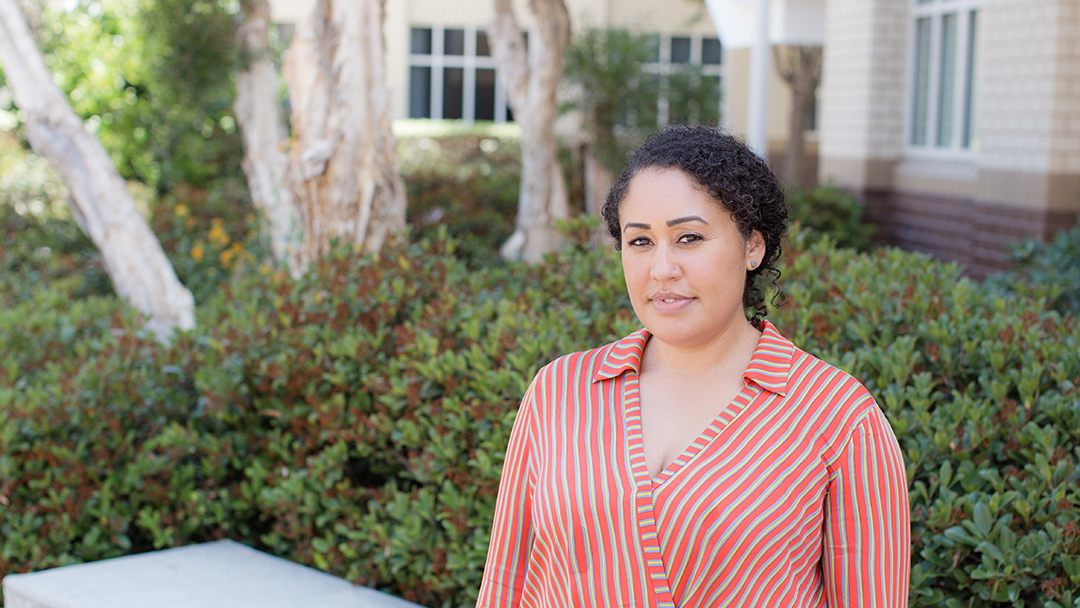
Veronica Valencia Gonzalez earns more awards and fellowships
The last time we checked in on Veronica Valencia Gonzalez, her paper “The Role of California’s Sanctuary Policies in the Formal Help-seeking of Latina Immigrant Survivors of Intimate Partner Violence” was about to receive the 2022 Graduate Student Paper Award at November’s American Society of Criminology conference.
Call it the paper that keeps on giving, because the same work from the sixth-year UC Irvine criminology, law & society doctoral student went on to be honored by the Western Society of Criminology, the Latin American Studies Association, and by Mexico’s Secretariat of External Relations. More lauds and laurels could be on the way as Gonzalez entered the paper in a couple other competitions.
For all that award hardware, Gonzalez is less impressed by personal glory than she is on getting more eyes on her research.
“I’m thrilled that the paper seems to have resonated with so many and I hope that more people will want to read it,” she says.
Those who read it will discover that despite undocumented survivors of intimate partner violence (IPV) having access to services and resources under California’s sanctuary policies, they are reluctant to seek them out, fearful they may not help and hesitant to produce identification to receive assistance. Gonzalez’s paper recommends more outreach and alternative ways to glean the information that had been sought from IDs.
“I am happy that I have managed to convey the issues in seeking formal help for the women in the piece,” she says. “Whenever someone is sharing their story and trusting me with their story, I hope that I do justice to their experience. The awards make me feel like I didn’t let them down, and that I managed to make a compelling case to continue fighting to improve how we provide services to immigrant survivors of IPV.”
Having previously obtained her undergraduate degrees from UCI in criminology, law & society and what was then psychology & social behavior and is now psychological science, Gonzalez is used to being recognized as a graduate student researcher. She was named a National Science Foundation Graduate Research Fellow in 2019 and recipient of the 2022-23 UCI Public Impact Fellowship and 2023-24 UC President’s Pre-Professoriate Fellowship.
“This is another one of those awards that means a lot to me because it recognizes the potential our research has to make an impact in the world and our communities,” Gonzalez says of the UCI Public Impact Fellowship. “The whole point of my work is to ensure it does make an impact in the real world. For that reason, I take my work and present at conferences, write papers, submit it for awards, and also talk to legislators. I also write reports and share those with the community organizations I work with for my research.”
Gonzalez is especially awed to be one of only two Ph.D. students on campus to receive the UC President’s Pre-Professoriate Fellowship, which aims to foster interest and preparation for the professoriate for California Hispanic-Serving Institution alumni with advanced candidacy at a UC. Chosen students receive a $30,000 stipend for one academic year and a $10,000 grant for professional development opportunities to expose, prepare and inspire fellows to pursue the professoriate.
“I am just so grateful to have been selected for this award,” Gonzalez says. “The award will help fund my final year so I can focus on completing my dissertation and defend by the end of spring of 2024. The award also provides funding to support preparation for a career as a professor. The support to prepare for a career in academia is especially appealing to me, because I know first-hand the impact professors can have on students.”
To illustrate that point, she recounts the time shortly after transferring to UCI as an undergraduate when she attended a guest lecture by Maria Rendón, associate professor of urban planning and public policy and director of the Urban and Environmental Planning and Policy Ph.D. program.
“She was the first Latina professor I had met,” Gonzalez says. “Just seeing a Latina doctor and professor was awesome, but hearing her speak about her experience as a Latina in her research helping her connect with the people she interviewed made me look at my heritage in a different way. I had always heard how being Latinx made you more likely to drop out of school, or to end up in jail, but here was a Latina sharing how her background was an asset. I ended up emailing her and eventually Dr. Rendón gave me my first experience in research which began my love for research. Now I dream of hopefully doing the same for other students from diverse backgrounds, helping them to see how their unique backgrounds and experiences can also be an asset. This fellowship will help me do that.”
— Matt Coker
Related